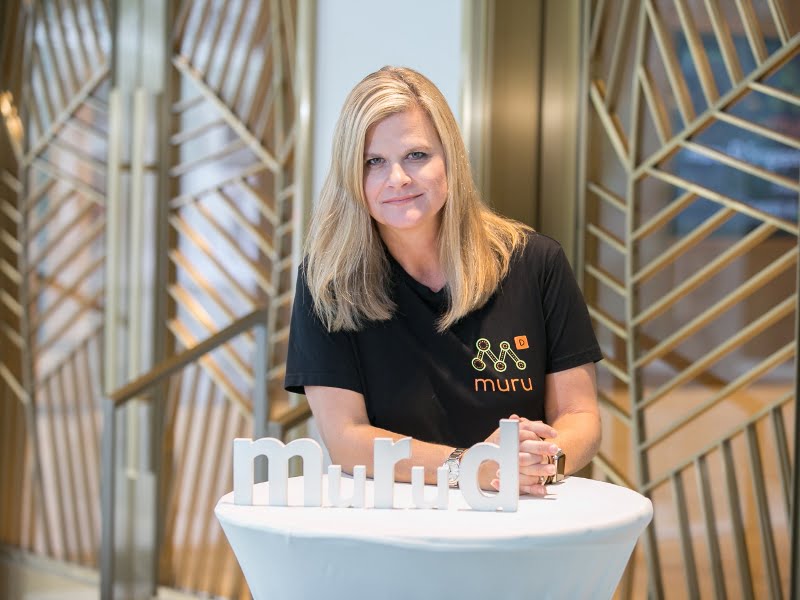Big investment decisions don’t get made in a vacuum. They are the end-point of targeted work by powerful interests over a period of time.
Very often there is an element of serendipity, and this was certainly the case with the freshly squeezed Sydney Startup Hub and the significant involvement of the Microsoft Scale-Up accelerator.
Microsoft Australia managing director Steve Worrall says the decision to establish its accelerator in Sydney over rival cities not just in Australia but across the region was intensely competitive.

Australia was not the only contender for the role in Asia and the corporate leadership team spent time talking to other cities through the region.
What Mr Worrall didn’t mention is that Sydney and Australia had a secret weapon in the discussion. Microsoft corporate vice-president for Azure growth and ecosystems Charlotte Yarkoni not only knew Sydney well, but has deep connections into its startup ecosystem.
Until about 18 months ago, Ms Yarkoni – a US national – had been President of the Telstra Software Group and had been splitting her time between her native Seattle and Sydney.
Among other things during this time, ‘Aussie Charlotte’ co-founded Telstra’s Muru-D accelerator. You can read an InnovationAus.com profile of her here.
Ms Yarkoni’s co-founder at Muru-D was Annie Parker, who has now been recruited by Microsoft to run its global startup program based in Australia – reporting directly to Charlotte Yarkoni.
And let’s not leave out the very significant role of former Telstra chief executive David Thodey in all of this.
Mr Thodey was running Telstra when he appointed Ms Yarkoni to the software role, and he was chairman of Jobs for NSW when it pressed ahead with its $35 million investment in the Sydney Startup Hub and entered its serendipitous relationship with Microsoft.
There is a lesson here somewhere. Something to do with the global market for talent, of connectivity, all that good stuff. And the importance of the free flow of rare talent.
Just days after the Sydney Startup Hub officially opened its doors, the now Seattle-based Ms Yarkoni announced that the Microsoft for Startups program had committed US$500 million (A$630 million) over the next two years “to offer joint sales engagements with startups, along with access to our technology, and new community spaces that promote collaboration across local and global ecosystems.”
Sydney, by route of the Microsoft Scale-Up involvement at the Sydney Startup Hub, is now at the good end of the Microsoft investment funnel that will deliver a portion of that support.
Under the Microsoft for Startups program (formerly BizSpark), Ms Yarkoni says Microsoft will provide $500 million worth of sales assistance and Azure credits to startups around the world. It will commit to helping plug selected startups into its sales engine.
It is certainly worth noting that the Microsoft for Startups program at the Sydney Startup Hub is a regional play. There are just eight Microsoft Scale-Up cities around the world. Two are in China (Beijing and Shanghai) and Sydney was selected on the basis that it is for this region.
It is also worth noting that while the Thodey-Yarkoni-Parker relationships are interesting to note, they are aren’t everything. Telstra’s Muru-D accelerator had successfully set up in Singapore when those three players were all still at Telstra.
It’s not like Singapore would not have been competing for the investment, or that it would have been closely considered by Microsoft.
But it is in Sydney. It expects to put about 20 Scale-Up’s through its four-month immersive program each year (although probably just one cohort on 10 in 2018 as it grows makes its first hires).
The program is open to all, and it will be competitive, including startups from Asia.
And this brings us back to people and talent and government policy. Access to talent – including startup talent – is fundamentally important. In the context of better integrating the Australia startup sector with the rest of Asia, this is another opportunity.
But until government makes it easier for entrepreneurs to come to Australia to immerse themselves in the local startup ecosystem, it’s an opportunity that won’t be fully realised.
Do you know more? Contact James Riley via Email.

